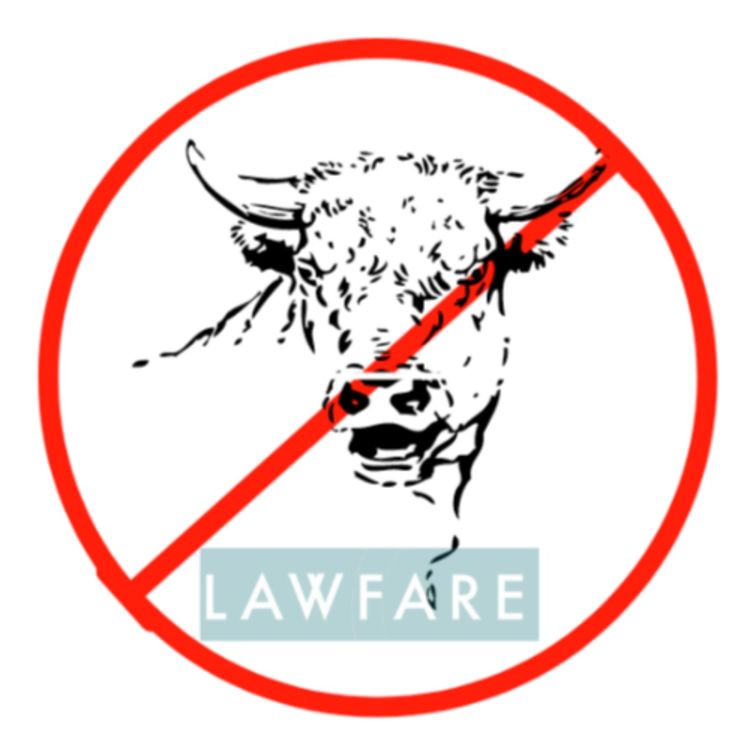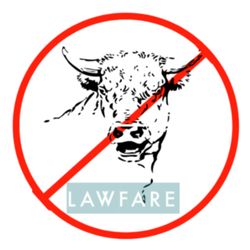Share

Lawfare No Bull
Day 7, House Select Committee on the January 6 Attack
On Tuesday, July 12th, the House Select Committee to Investigate the January 6th attack on the United States Capitol held its seventh public hearing. The hearing first focused on the explosive meeting in the White House on December 18th, when lawyer Sydney Powell and Michael Flynn, former Trump National Security Advisor, fought with Pat Cipollone and other close Trump advisors.
The hearing then focused on former President Trump's tweet, soon after this meeting, that called his supporters to a rally in Washington on January 6th. The committee showed how this tweet galvanized extremist groups, like the Proud Boys and the Oathkeepers, to organize and coordinate ahead of the January 6th attack on the Capitol.
The committee also heard testimony from Jason Van Tatenhove, the former Oathkeeper spokesman, and Stephen Ayres, a Trump supporter who stormed the Capitol on January 6th.
More episodes
View all episodes

Former Special Counsel Jack Smith Testifies Before the House Judiciary Committee
01:24:43|On January 22nd, former special counsel Jack Smith testified before the House Judiciary Committee in a hearing entitled, “Oversight of the Office of Special Counsel Jack Smith.” Over four and a half hours, the committee questioned Smith about the indictments previously brought against President Trump, Smith’s investigation into the January 6th riot at the Capitol, the decision to subpoena congressional phone records, the classified documents case, and more.
Attorney General Pam Bondi testifies before the Senate Judiciary Committee
01:59:07|On October 7th, Attorney General Pam Bondi testified before the Senate Judiciary Committee at a hearing entitled “Oversight of the Department of Justice.” The committee questioned Bondi about politicized personnel decisions at the Justice Department, the deployment of the National Guard to states, anti-corruption enforcement, border czar Tom Homan’s alleged acceptance of $50,000 during an FBI sting, and more.
FBI Director Kash Patel Testifies Before the House Judiciary Committee
02:34:45|On September 17, FBI Director Kash Patel testified before the House Judiciary Committee in an annual hearing entitled “Oversight of the Federal Bureau of Investigation.” The committee questioned Patel about the firing of FBI agents involved in investigating President Trump, the Jeffrey Epstein case, the investigation into the murder of Charlie Kirk, and more.
FBI Director Kash Patel Testifies Before the Senate Judiciary Committee
02:21:12|On September 16, FBI Director Kash Patel testified before the Senate Judiciary Committee in an annual hearing entitled “Oversight of the Federal Bureau of Investigation.” The committee questioned Patel about the firing of FBI agents involved in investigating President Trump, the Jeffrey Epstein case, the investigation into the murder of Charlie Kirk, and more.
House Appropriations Subcommittee Holds Department of Defense Oversight Hearing
01:16:35|Today on Lawfare No Bull: On June 10, the House Appropriations Subcommittee held an oversight hearing for the Department of Defense. Defense Secretary Pete Hegseth, Chairman of the Joint Chiefs of Staff General Dan Caine, and Bryn MacDonnell, Special Assistant Performing the Duties of the Under Secretary of Defense (Comptroller)/Chief Financial Officer, testified before the committee. Members of the committee questioned the witnesses about the delay in receiving the Department’s FY2026 budget, investments in submarines, the cost of deploying troops to Los Angeles, cuts to personnel and programs, and more.
House Intelligence Committee Holds Worldwide Threats Hearing
02:18:03|Today on Lawfare No Bull: On March 26, the House Intelligence Committee held the annual Worldwide Threats hearing based on the Annual Threat Assessment of the United States Intelligence Community. Director of National Intelligence Tulsi Gabbard, Central Intelligence Agency Director John Ratcliffe, Federal Bureau of Investigation Director Kash Patel, National Security Agency and Central Security Service Director Timothy Haugh, and Defense Intelligence Agency Director Jeffrey Kruse testified before the committee. Members of the intelligence committee questioned the witnesses about their participation in a Signal group chat that discussed plans to conduct strikes in Yemen, threats posed by Russia and China, the intelligence community’s assessment of emerging threats, and more.To receive ad-free podcasts, become a Lawfare Material Supporter at www.patreon.com/lawfare. You can also support Lawfare by making a one-time donation at https://givebutter.com/lawfare-institute.
Senate Intelligence Committee Holds Worldwide Threats Hearing
01:49:39|Today on Lawfare No Bull: On March 25, the Senate Intelligence Committee held the annual Worldwide Threats hearing based on the Annual Threat Assessment of the United States Intelligence Community. Director of National Intelligence Tulsi Gabbard, Central Intelligence Agency Director John Ratcliffe, Federal Bureau of Investigation Director Kash Patel, National Security Agency and Central Security Service Director Timothy Haugh, and Defense Intelligence Agency Director Jeffrey Kruse testified before the committee. Members of the intelligence committee questioned the witnesses about their participation in a Signal group chat that discussed plans to conduct strikes in Yemen, threats posed by Russia and China, the intelligence community’s assessment of emerging threats, and more.To receive ad-free podcasts, become a Lawfare Material Supporter at www.patreon.com/lawfare. You can also support Lawfare by making a one-time donation at https://givebutter.com/lawfare-institute.
D.C. Circuit Hears Oral Argument in J.G.G. v. Trump
01:50:19|Today on Lawfare No Bull: On March 24, the United States Court of Appeals for the District of Columbia Circuit heard arguments on whether to stay a temporary restraining order issued on March 15—which bars summary removals of alleged members of Tren de Aragua, a Venezuelan criminal gang—under the Alien Enemies Act of 1798. The panel, composed of Judge Patricia Millet, Judge Justin Miller, and Judge Karen LeCraft Henderson, asked attorneys about the lack of notice and process given to migrants, why the migrants couldn’t have just filed habeas petitions, and why the lawyers filed in D.C. rather than Texas.To receive ad-free podcasts, become a Lawfare Material Supporter at www.patreon.com/lawfare. You can also support Lawfare by making a one-time donation at https://givebutter.com/lawfare-institute.
Confirmation Hearing for Deputy Attorney General Nominee Todd Blanche
01:06:42|Today on Lawfare No Bull: On Feb. 12, the Senate Judiciary Committee held the confirmation hearing of deputy attorney general nominee Todd Blanche. The Committee questioned Blanche about his representation of President Donald Trump in multiple criminal cases, whether he would recuse himself from future Department of Justice investigations into cases against Trump, the firings at the department and the Federal Bureau of Investigation, and more.To receive ad-free podcasts, become a Lawfare Material Supporter at www.patreon.com/lawfare. You can also support Lawfare by making a one-time donation at https://givebutter.com/lawfare-institute.